Affiliate disclosure: This post may contain affiliate links. Please see our Privacy Policy.
Earning a little bit of money from your homestead is easy enough. Sell a dozen eggs to a few neighbors, or take a few homemade jams to the farmers market and you’ll have a bit of pocket money.
What happens when you need more than pocket change from your off-grid homestead? How do you earn a full-time living off the grid?
The even bigger challenge is finding a way to make a living off-grid that still lets you enjoy your off-grid backwoods lifestyle. Why did you bother moving off the grid in the first place if you’re going to spend all your waking hours cooped up trying to earn a living rather than living your life?
For the first few years after we found our off-grid homestead, my husband and I spent most of our waking hours trying to just scrape by. We tried just about everything on those “100 ways to earn a living from your homestead” lists and kept coming up short. More often than not, we were working long hours with very little to show for it.
Eventually, we sat down and thought long and hard about how to make this work. If we were going to live this life, we had to find a way to actually live, rather than just earn a living. We needed to find ways to earn a higher margin on our products and to leverage our land and skills to earn a real income.
After 5 years on this land, we’ve learned a lot about how to turn a profit while still staying stay sane and healthy.
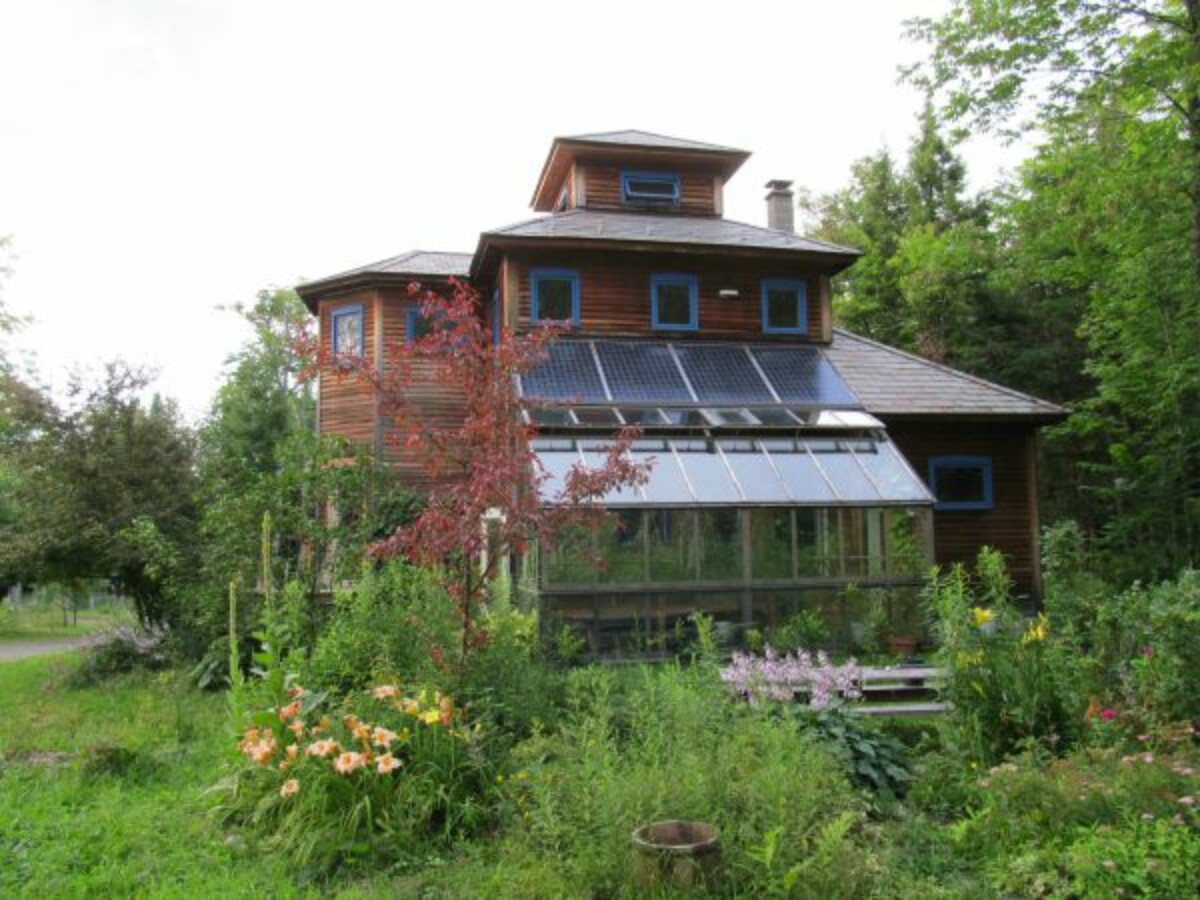
Table of Contents
Profitable Farm Products
If running a full-scale farm was easy, a lot more people would do it. Farming, for the most part, is hard work and takes a huge investment in time, energy and equipment.
My friend Scott over at North Country Farmer routinely talks about 18 hour days year-round on his dairy farm with barely any profit to speak of. He and his family love every minute of it, but that life isn’t for everyone, especially if you’ve moved off-grid later in life.
While it may seem tempting to start a vegetable CSA, take a look at how many already exist in your area. There are more than 80 vegetable CSA operations within a 20-mile radius of our house.
In that same space, the total population is about 25,000. Sure, Vermonters like their CSA’s, but each and every one has to really hustle to stay in business, and many don’t make it.
The market for vegetables, meat, milk and eggs is saturated. Even if there were few operations locally, generic farm products, even organic ones, have low margins. We tried a number of different ventures, and no matter how low we kept costs we still barely made a profit after a lot of long hours.
If you want to see a real income from your farm products, go for niche products and value-added items that have a high market value but require relatively little time investment. Here are some good examples:
Mushrooms
High-demand mushroom varieties like shiitake, portabella and oyster are easy to grow and high-yielding. Once inoculated, logs can produce for years with only minimal tending. Most of your work will be in harvesting and marketing the mushrooms or working to preserve them.
There is a good market for dried and tinctured medicinal mushrooms such as online, and once preserved they’ll last in your inventory a whole lot better than fresh products. For medicinals, reishi mushrooms are a good place to start.
For our own mushroom farming, we found the book Organic Mushroom Farming and Mycoremediation to be our best resource. It’s a great how-to for all things mushroom farming and includes a lot of information on making your operation profitable.
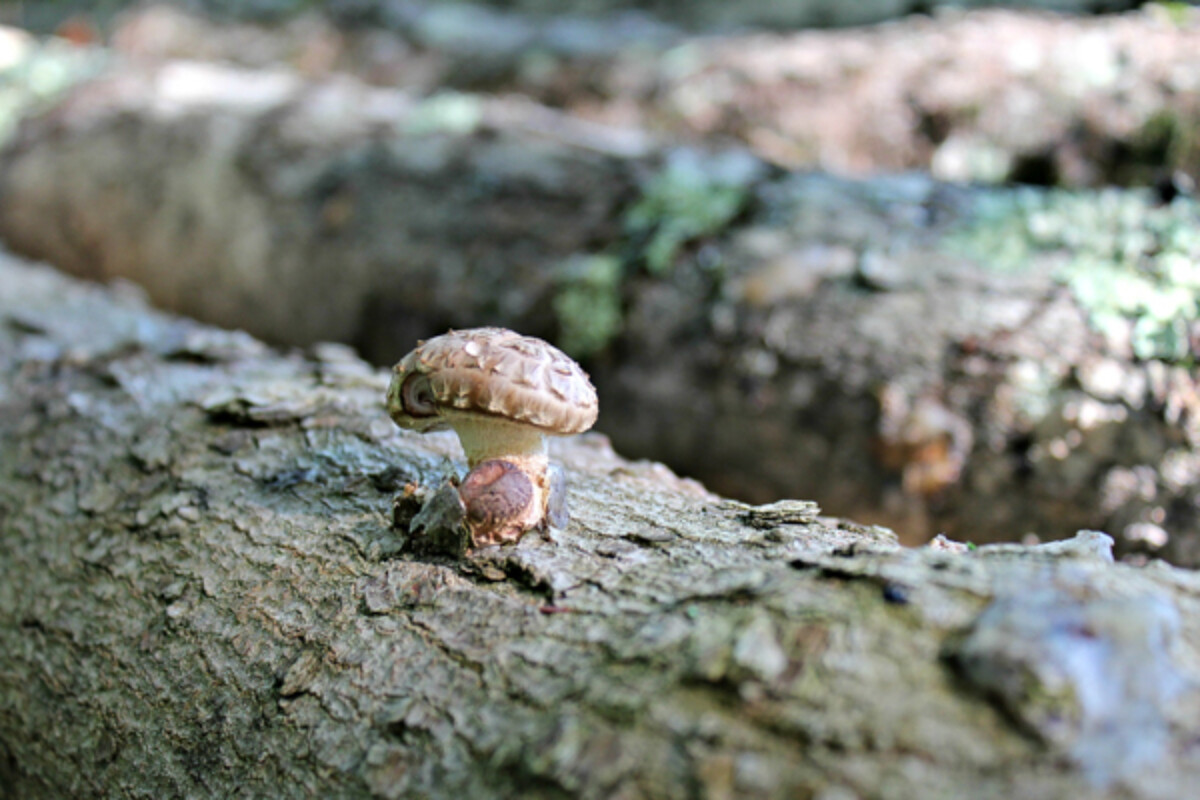
Hatching Eggs & Chicks
While just about everyone’s selling eggs for your table, very few people are supplying hatching eggs and chicks. Hatching eggs from in-demand poultry breeds can sell for $2 to $3 each, and there’s a healthy market for online sales.
If you have very dependable off-grid power, take one more step and hatch those eggs out into chicks and the price can double. It’s not unheard of to make as much as $1000 per month from as few as 15 chickens.
Honey
I always get feedback that beekeeping is not a “low time investment” and to those comments, I say bluntly: You’re doing it wrong. There are a number of beekeepers trying low intervention methods to allow bees to naturally adapt to the challenges they face these days. Just like a constant application of antibiotics breeds superbugs and weaker immune systems, high intervention beekeeping breeds stressed bees that are dependent on further interventions.
A local Vermont Beekeeper has an excellent book, Natural Beekeeping: Organic Approaches to Modern Apiculture that covers raising bees with very low intervention, even in cold climates. He’s been so successful that he has a waiting list for packaged bees from his genetic line.
Maple Syrup
In climates where maple can be produced, it’s a great way to earn extra income during the winter and early spring. Though the upfront costs can be high, it has a reasonably quick return on investment.
There’s not a lot of other farm work to be done during sugaring season, and honestly, it’s my favorite thing to produce. I’d make syrup even if we never sold a pint, so I can’t think of a better way to make an income in the early spring.
I wrote up a cost breakdown for a small-scale maple sugaring operation (under 150 taps) to help guide you in getting started. If you do decide to try your hand at sugaring for serious income, I’d recommend The Sugarmaker’s Companion: An Integrated Approach to Producing Syrup from Maple, Birch and Walnut Trees.
Medicinal & Culinary Herbs
Most herbs have the benefit of being vigorous growers, and the compounds in them that make them tasty or medicinal are actually the plants’ natural defenses against pests. While pests and deer destroyed our lettuce crop, nothing touches our sage, bee balm or valerian.
Every year they re-sow and take over more land, no matter how much we harvest. Herbs are good like that. For the most part, they’re perennial, persistent and more importantly…profitable.
If you’re considering growing herbs for profit I’d highly recommend The Organic Medicinal Herb Farmer: The Ultimate Guide to Producing High-Quality Herbs on a Market Scale. It’s written by farmers that grow just a few towns over from us, and they’ve inspired a lot of people to take up growing medicine for market.
The Herbal Academy of New England also has a course designed specifically for herbal entrepreneurs. The course walks you through the basics of creating your own brand identity, marketing, sourcing herbal ingredients, manufacturing herbal remedies and creating a business plan around herbs and herbal remedies.
If you’re just getting started with herbs, and want to bolster your own education well before you commit to anything as ambitious as starting your own herbal business, they also have a number of other courses including:
- Herbal Materia Medica Course: Designed to spark your excitement for herbal studies and help you develop your own materia medica.
- Introductory Herbalist Course: A self-study course for students with little or no herbal experience.
For a full list of the Herbal Academy of New England’s Courses click here.
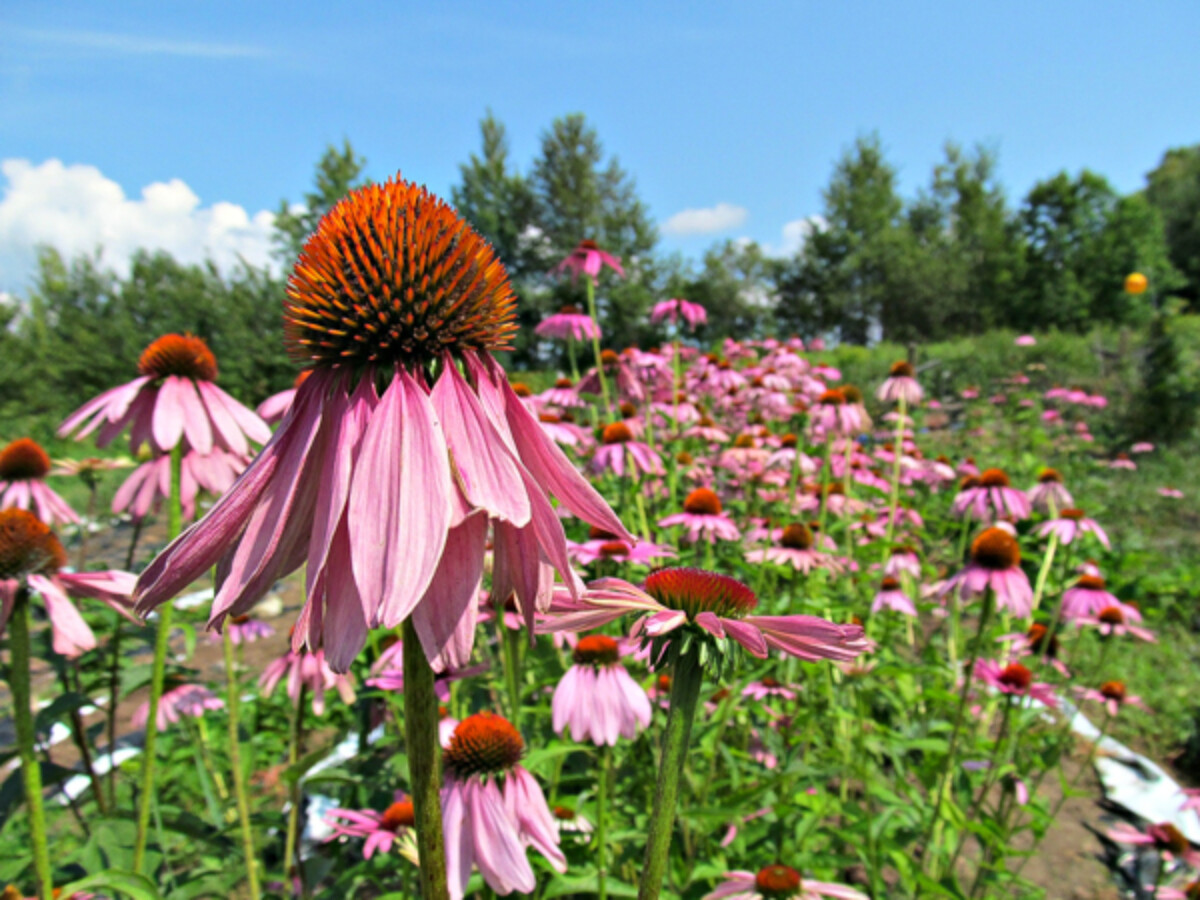
Nursery Crops
It may take a few years to get started, but propagating your own plants is so much easier than most people think. Nurseries have high margins and relatively low costs after startup. A single grape plant can be propagated to produce hundreds of plants in a year, each of which can sell for $8-10, with the only costs being pots and potting soil.
Try So You Want to Start a Nursery or Practical Woody Plant Propagation for Nursery Growers to get you started.
Freelance or Work Remotely
Depending on your current trade, you may be able to move to a remote off-grid location and work remotely. Freelancer sites, like upwork, provide a lot of opportunities to earn a full-time income online from anywhere in the world.
There are a lot of good internet options for off-grid setups these days, and we’ve used both satellite and radio internet successfully. If you’re freelance writing or blogging, you don’t even need a connection to do your writing, and you can always go into a public library to upload your work.
I was inspired to take the leap into blogging when I read the book Make Money Blogging at Any Level by my blogger friend, Victoria at A Modern Homestead. She’s now converted that book into a full course called “How to Build a 6-Figure Blog in 10 Hours a Week (Without Self-Doubt or Guesswork Getting in the Way).” At this point, it’s a start-to-finish guide that takes you step by step from setting up a blog to making a substantial living online.
She was able to retire her husband and support her family exclusively with her blog. If you’re considering blogging as a source of income, it’s worth the investment. She has a free intro training, which is a great place to start, as well as a comprehensive blogging e-course that takes you through everything you need to know to launch your own profitable blog.
It’s a bit more of an investment, but it’s the perfect way for a beginner to learn everything they need to know to launch their blog fast and start earning money.
The course is a bit of an investment, but I wish I’d taken it back when I started. I spent months learning everything the hard way instead…
I followed Victoria’s advice, and within a few months, I was making $1000 a month from my writing, which went a long way toward helping to support my family on just a few hours a week.
Two years later, I’m making even more!
Freelance writing and my blog make up 60-80% of my family’s monthly income currently.
Rent or Lease Parts of Your Land
Depending on how much land you have, it might be practical to lease out parts of it to other farmers. If large-scale maple sugaring isn’t for you, but you have acres of woodland full of maples you can lease that land to a maple syrup producer and earn passive income without putting in any hours.
There’s always a hybrid approach too. Some farmers collect the sap but sell the sap to a producer so they don’t have to invest in a commercial evaporator.
Similarly, in many areas leasing your land for grazing or haying is common practice. Other areas have a high demand for leased plots for small-scale vegetable production.
Often while it’s leased the farmer will work to improve the land, adding fertility and keeping things in good shape for you later on down the line if you want to start working that land yourself at some point.
Leasing parts of your land for agriculture might also save you on your property taxes too. Here in Vermont, we have something called “current use” which lowers taxes on land currently in agricultural use. Property taxes are a huge expense, and something we didn’t budget for when we moved off-grid.
Teach Classes
Living a self-sufficient life was your dream, but it’s also the dream of countless others. If you’ve made the leap to living off the grid and working to produce your own energy and food, chances are you’ve learned a lot along the way. Teaching courses on everything from solar installation to animal processing to permaculture can help you connect with other aspiring homesteaders while keeping you engaged and up to date with your passions.
To teach about your experiences, you don’t necessarily need to be an in-person teacher. A fellow off-grid blogger, Teri Page of Homestead Honey, also makes a substantial portion of her income through her writing how-to books about off-grid living.
In her book, Creating Your Off-Grid Homestead, Teri walks you through every part of setting up an off-grid homestead. Another one of her books takes you through building a Backyard Bread and Pizza Oven and another is about Building a Backyard Root Cellar.

Keep in mind that no matter what you teach, you need to know your subject matter and provide real value to your students in order to be successful.
Full-day animal processing classes tend to cost around $300 per person, and the host keeps all the meat. It’s a pretty good deal to get help doing the hard work you were planning on anyway.
Full-time permaculture certification classes tend to last about 2-3 weeks and cost $2000 to $3000 per person. Running just one or two 10 person classes once per year could be enough to fund your lifestyle year-round, and then you can spend the rest of your time working on your “demonstration garden.”
If you don’t feel qualified to teach courses, or just don’t feel it’s a good fit for your personality, try hosting courses. Teachers often have a following of students but need more venues for teaching.
If you have good infrastructure in place, a permaculture teacher might pay you for the chance to bring a class to your land, just to allow the students to work your land for you. Pretty sweet deal, right?
There are a lot of permaculture books out there to get you started, but if you’re serious about teaching courses I’d suggest investing in the Edible Forest Gardens two-volume set. They’re the definitive textbooks for aspiring permaculturists, and a great resource to have on hand for any forest gardener, teacher or otherwise.
Sell Foraged or Wildcrafted Products
Most off-grid homes have access to one crucial element that city and suburban homes lack: nature and wilderness. Imagine actually getting paid for taking a walk in the woods and observing your surroundings. Wild mushrooms always sell out in the first hour at the farmers’ markets around here, even at $20 to $40 per pound.
While it takes a long time to learn to identify some types of plants or mushrooms, others are pretty foolproof and no less profitable. Have you ever seen bundles of dandelion greens at the supermarket and thought to yourself, my lawn’s worth millions…?
Foraged food doesn’t have to be hard to find to be in demand. All it takes is a little time, education and confidence along with ready access to a wild area. I can think of no more pleasant way to spend my summer than on a walk in the woods.
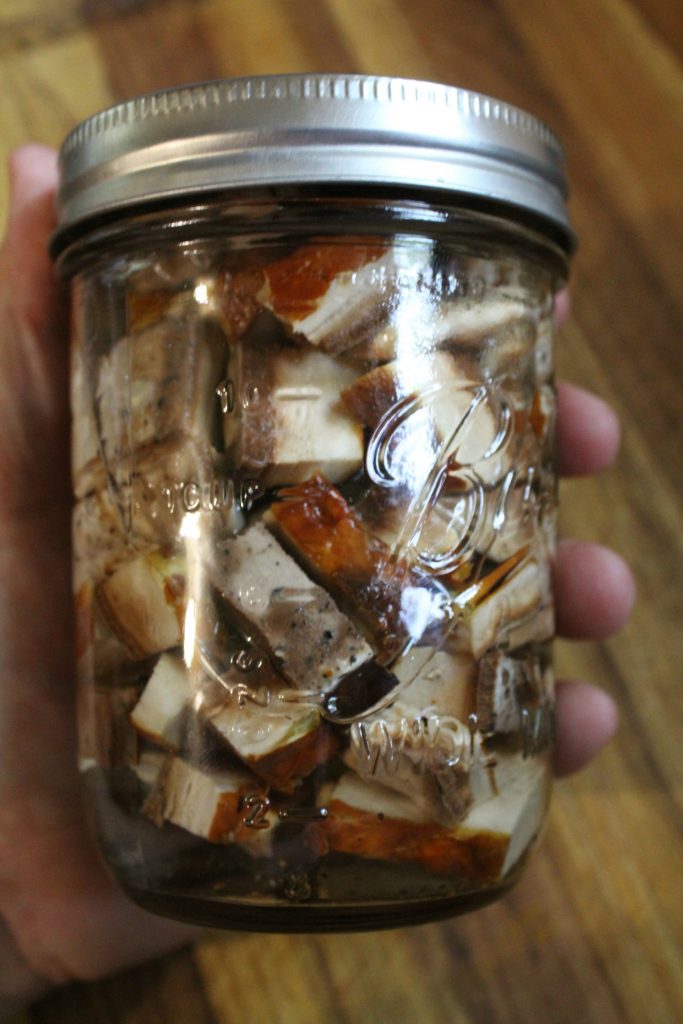
Sell Timber and Firewood
The thing about homesteading on wooded land is that in order to grow your own food, even your own forest garden perennials, you need to create sunlight and open up the canopy. Cutting wood is something we’ve gotten good at as a matter of necessity, and depending on our growing ambitions, some years we cut way more wood than we actually need to stay warm.
While I wouldn’t recommend firewood as an efficient way to make money, if you’re already growing forest crops, medicinals or mushrooms, firewood is a logical value add. Depending on the makeup of your woods, you may also be able to sell high-value timber in a sustainable way.
A friend of ours (and former neighbor) runs an amazing magazine called Northern Woodlands that discussed all things woodland management and is an invaluable resource for anyone homesteading on wooded land. They put out several books on woodland management, that I’d recommend Working with Your Woodland if you hope to make money from wood or forest products.
Host Retreats and Campers
If you’re living in paradise, there’s a good chance others would pay to experience a slice of it. Air BNB is really taking off as a source of secondary income for many people, and unique situations command a premium. The most popular Air BNB rental is actually a treehouse without running water or a bathroom.
Another site, Hip Camp, allows you to rent out a corner of your land for campers to pitch a tent. Provide amenities or just provide land and privacy, it’s your choice. Some of our neighbors make $30 to $50 per night in a secluded spot at the back of their land with little to no work on their part.
Festivals, yoga retreats and weddings are also an option, but you’ll need a good bit of infrastructure and planning to pull those off. Still, wedding venues, at least here in Vermont, regularly pull $3000 per 1-day rental. Jeudevine falls just up the road from us has no permanent buildings, just a gazebo and waterfall, along with a small lawn to set up a few tents.
Learn a Craft
If you’re crafty, selling your crafts online is easier than ever. Etsy allows you to reach a wide audience so long as you produce high-quality work.
Consider learning pottery, train as a blacksmith or making unique cutting boards or birdhouses. For the creative, this is a great way to earn good money for your craft.
Personally, I’m not as crafty as I’d like to be. I could never produce anything that seemed, at least to me, worth selling. We’ve had more success selling raw materials to fellow crafters.
I wrote an article on how to market angora fiber from your backyard rabbits, and feathers, wool, even wild found pine cones and bird nests are bought and sold for a decent profit.
Conclusions
What do you think? Are you ready to go off-grid? How do you plan to earn an income? Leave your answer in the comments below, and signup for our newsletter to hear how things are going on our off-grid homestead.
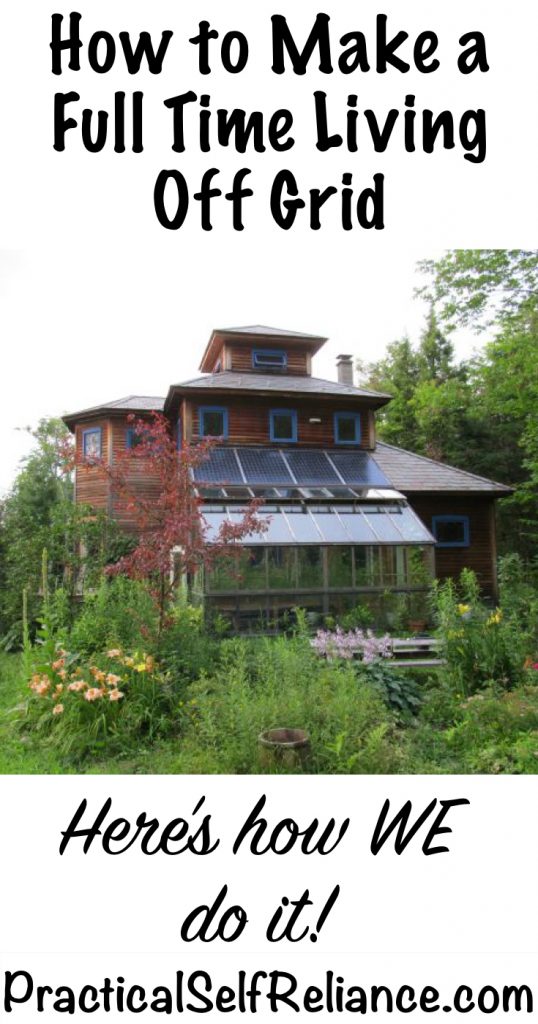


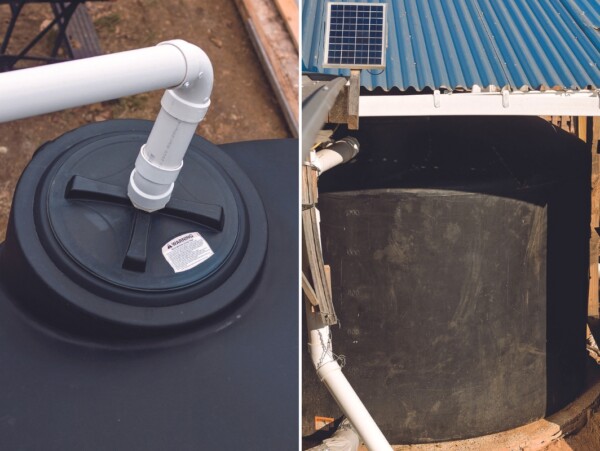
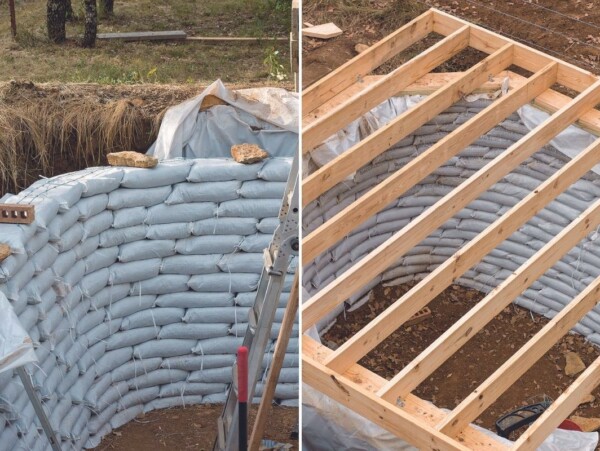









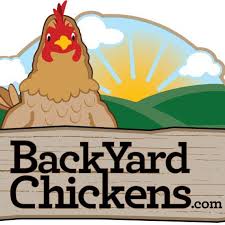
Hi ! I just wanna say Hi and your article is soon great, you added something from your life . I want to live off grid. Actually I see life off grid being the best way of life.
Hope you have a good harvester year!
And Happy Easter! 🐣 🐰
Thanks so much and Happy Easter to you too!
Useful information. Fortunate me I discovered your website by accident, and I am stunned why this twist of fate did not happened in advance! I bookmarked it.
So glad you enjoyed it.
I what to put into practice: making extra money with your knowledge. I never knew this life could be so wonderful! Yes, it is NOT easy when you start later in life.
I’m off grid due to an elder needing help. I have my own “space” on her property and I check on her daily. She has goats and bees, but it’s learning to forage that keeps me happy here.
I plan to keep ducks and have recently learned to filter water for the purpose of having a fresh supply handy. I’m saving up to have a loom and spinning wheel built. I already make plant dyes for small projects, so the next step up should not be too difficult.
She keeps goats and bees, but there’s lots of wildlife, and the foraging is phenomenal! I have made my own medicine for ages and my goat milk soaps are a big hit.
Most everyone barters here and it can become intense. I exchange raw goods, meals, and sewing for jobs more easily done by younger, healthier workers.
This community is committed to helping each other grow and learn. I plan to ask if anyone wants to make money the way you described, or find out if they already do.
That’s great! I love that you have a community around you that barters and helps each other.
I am keen to purchase a grass field and plant an edible forest where people can visit and “Pick Your Own”, but Apples do Really well here in Wales so making Cider or selling them to local brewers is an option….
Wow what an amazing article, I worked as a farm manager on a off-grid property for 6 years and was supposed to return to a farm in Santa Cruz but the COVID-19 broke out and ruined that plan. I was reading This and it made miss working the land and it Also made wish I had this when I was the farm, I loved living off-grid but scrapping by seem like it was every other month.
Love all the info so many helpful advise .cant wait to try it all out
Thank you so much for sharing and your added links, I am going to look for a couple of the books. We are going to go off grid just in the planning stages now. We have lots of land and a log home on a lake. Only ones on the lake.
Thanks again